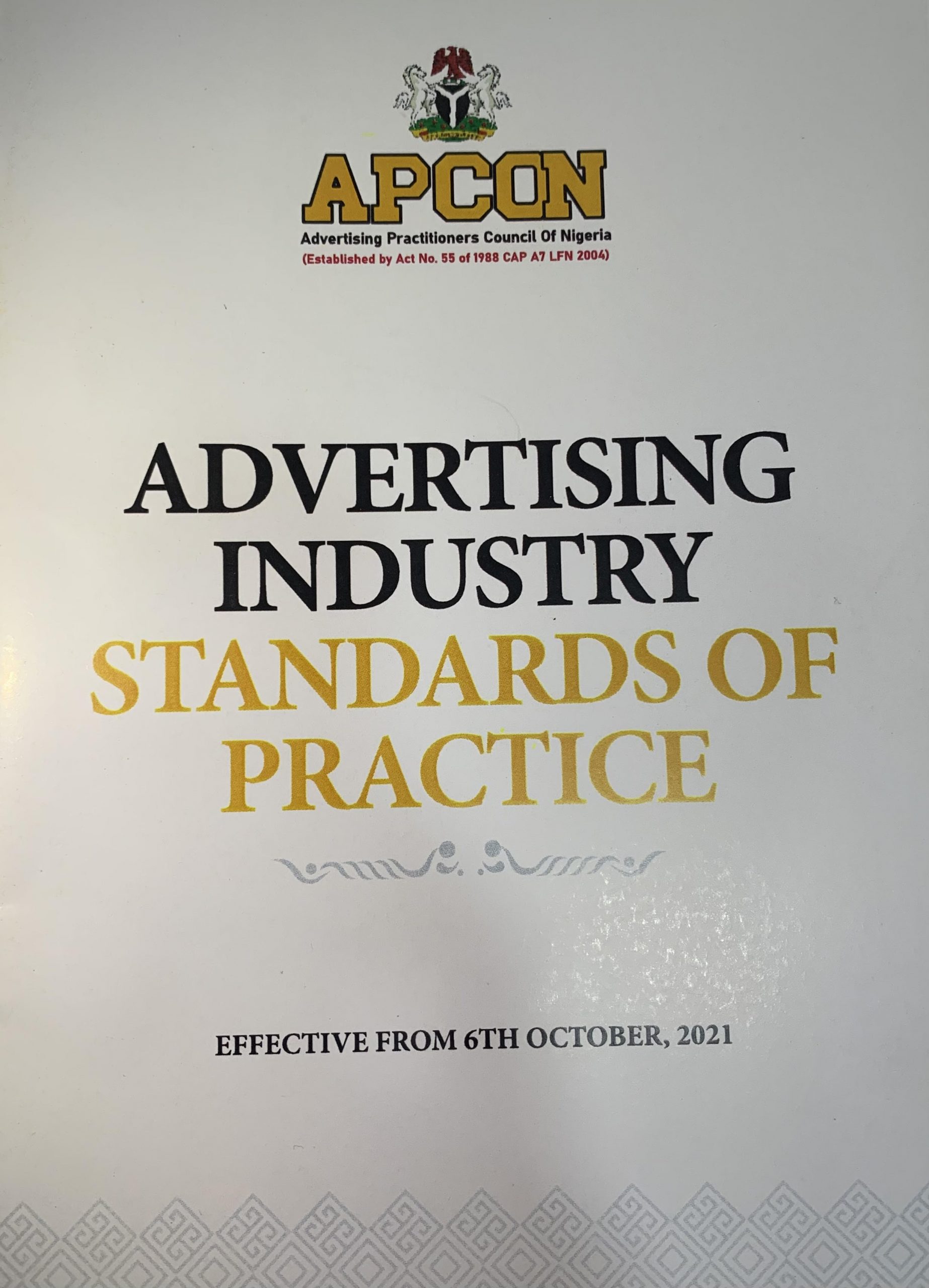
Of AISOP, regulation and Industry Dialogue
By Ralph Tathagata
On November 25, 2019 at the National Advertising Conference organised by Advertising Practitioners Council of Nigeria (APCON) in Abuja, Dr. Biodun Shobanjo, the chairman of Troyka Group recommended a 60-day payment period for media contracts by clients, perhaps through legislation.
A good number of advertising and marketing industry eggheads at the conference concurred with Dr. Shobanjo’s legislative proposal, describing it as a veritable tool to save what appears as master-servant relationship where agencies endure clients for fear of being blacklisted.
Two years later, APCON, under the leadership of Dr. Lekan Fadolapo, responded to the legislative proposal with the introduction of the Advertising Industry Standard of Practice (AISOP). APCON said the code of conduct would guide and regulate the business of advertising in Nigeria, describing it as a business framework that seeks to improve mutual respect, eradicate unfair advantage and unethical competition between relevant stakeholders in the advertising and marketing communications industry in Nigeria.
The introduction of AISOP was greeted with professional consensus, especially by the Heads of Advertising Sectoral Groups (HASG) comprising of the Association of Advertising Agencies of Nigeria (AAAN), Experiential Marketers’ Association of Nigeria (EXMAN), Media Independent Practitioners Association of Nigeria (MIPAN), Outdoor Advertising Association of Nigeria (OAAN), and Broadcasting Organization of Nigeria (BON).
However, Advertisers Association of Nigeria (ADVAN) was the only member of HASG, which is on the side of payment for advertisements that rejected certain elements of the code of practice. One of the provisions of the code of practice that continues to generate much controversy is the payment terms as reviewers argue that AISOP should not dictate terms of contract, but should allow parties to agree on their terms.
The 11 broad sections and other appendices that make up AISOP document, the reviewers argued, negate some aspects of the Nigerian constitution that allow businesses to freely enter into contractual agreements and it is ironical that a government regulatory agency that’s not a player will come up with rules for a wholly private sector-led endeavour. APCON, however, insisted that AISOP is designed to revitalize the advertising sector and grow the Small and Medium Enterprises (SMEs) operating in the space. Dr. Fadolapo has consistently maintained that AISOP is not regulating to strangulate the industry.
Recently, stakeholders in Nigeria’s Integrated Marketing Communications (IMC) industry opened fresh discussion on AISOP. Industry Dialogue, an exclusive platform organised by ADVAN for the deliberation of issues affecting the marketing communications business, focused its 2022 proceedings on the topic: The Role of Government Regulations in the Ease of Doing Business.
ADVAN Industry Dialogue, according to the organisers, seeks to provide a meeting point for critical stakeholders in the marcom industry and the various regulatory bodies, to proffer global best practice solutions on effective regulations for economic growth.
The renewed discussion on regulations, according to ADVAN, is to further demonstrate that stakeholders’ engagement is a continual work-in-progress, noting that the dialogue is an intervention in the issue of AISOP to see what could be done as one of its reform areas.
APCON, however, insisted that AISOP is, and should be seen by all stakeholders as a means and not an end for promoting equity and fairness in the business of advertising. The regulatory body revealed that the Federal Government’s directives stipulate that whatever policy APCON wants to come up with must be in line with the Nigerian constitution, must be in the best interest of the public, and must not go against any existing government policy.
As the critical dialogue continues on AISOP, the concern among many industry stakeholders, especially ADVAN, borders more on the liberty and rights of individuals and agencies entering into contractual agreement freely.
Meanwhile, APCON has reiterated that everything about advertising reform has to do with transparency and efficiency, noting that protocols and due process should be adhered to, including engagement and disengagement of agencies.
Unlike the 60 days payment period for media contracts by clients as proposed by Dr. Shobanjo in 2019, some of the provisions in the AISOP document include a minimum payment term of 45 days for advertising business. Any payment made outside the stipulated 45 days will attract interest payment at prevailing Central Bank of Nigeria (CBN) rate.
Whichever side the pendulum of the dialogue swings, the need for stakeholders to reach a consensus on a regulatory framework for the sake of business growth and development in Nigeria cannot be overstated. A document like AISOP is necessary for the regulation of advertising if Nigeria must measure up to global best practice. All stakeholders in the value chain of advertising should, therefore, be supported to succeed in a well regulated and professional environment.




Comment
No comments found.